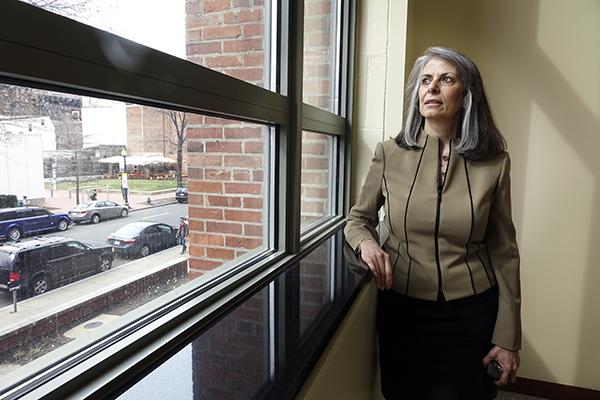A new research-funding partnership between the University and an energy company will provide three faculty-led projects with grants this year.
The grants, which will total $500,000 over five years, will support projects on energy topics like soil quality, solar energy and clean energy. GW partnered with Duke Energy Renewables, the award sponsor, two years ago to provide more than half of its electricity in a partnership with the GW Hospital and American University.
Executive Director of Sustainability Kathleen Merrigan met with Duke Energy Renewables officials last August to finalize a request for proposals. Merrigan and former provost Steven Lerman then shared the request with faculty and encouraged them to submit proposals for interdisciplinary research projects by November.
“When I look across our faculty in an effort to discern the areas where faculty expertise clusters, energy issues are top of the list,” Merrigan said in an email. “We are thrilled that Duke Energy Renewables has decided to invest in our faculty and provide them with research support to advance our collective sustainability goals.”
The three awards were announced this month, and combine energy research with sociology, law, engineering and economics.
Donna Attanasio, the senior adviser for energy law programs in the law school, is the lead researcher for a team that plans to develop a handbook for local governments about developing solar energy projects in low-income communities.
Attansio’s team will include undergraduate and graduate students in addition to faculty researchers. She said their work will set the stage for an increase in the use of renewable energy sources.
Attanasio said the grants strengthen the relationship between GW and Duke Energy beyond the business transaction of providing solar energy.
“I think it’s fantastic,” Attanasio said. “They’re involved in the University. I think it’s a great way for corporations to make an impact on universities.”
Saniya LeBlanc, an assistant professor of engineering and applied science, will analyze the effect of solar farms on the surrounding soil. LeBlanc will travel to North Carolina next week with a group of graduate students involved in the project to see the impact firsthand. LeBlanc did not respond to request for comment.
Ekundayo Shittu, an assistant professor of engineering management and systems engineering, is leading research on microgrids, which serve as a backup power source for the large grids that provide electricity to a city. Weather-related incidents and other technological glitches can shut down the larger grids, causing outages that affect large amounts of people.
Shittu is working on this project in collaboration with Attanasio and representatives from the Center for Climate and Energy Solutions, and said their research will help those thinking of investing in microgrids maximize their potential.
While Shittu, Attanasio and LeBlanc are all leading their own projects, they also helping with each others’ projects. Shittu said working with the two other award winners will expose them to different perspectives on the environment and renewable energy, like the legal and economic factors that play into developing microgrids.
“You can see how integrated the projects are,” Shittu said. “Research is no longer done in isolation, now it’s all about problem-solving interdisciplinarily.”
The impact of these projects, Shittu said, will go beyond the GW community. The project leaders plan to host town halls this year that will bring together representatives from utility companies, think tanks and other policymakers to share the results of the research projects and show how to apply them to real environmental challenges.
“Maybe that could help them move the needle forward,” Shittu said. “That makes the research we do at GW be impactful over and above just on-the-shelf research.”







